Frozen carrots are a kitchen staple for many households, offering convenience, long shelf life, and preserved nutrients. However, one common question persists: Do you thaw frozen carrots before cooking? The answer largely depends on the cooking method and the recipe you’re preparing. Whether you’re making a comforting soup, a healthy stir-fry, or a refreshing salad, understanding when to thaw frozen carrots can help you achieve the best texture and flavor in your dishes.
Frozen vegetables like carrots are a versatile ingredient, perfect for quick meal prep and recipes that call for minimal fuss. With proper handling, they can go straight from the freezer into your pot, pan, or oven. But thawing them for certain dishes—like casseroles or salads—can unlock their full potential. In this guide, we’ll walk through the pros and cons of thawing, explore best practices for cooking frozen carrots, and suggest recipes that highlight their versatility. For those curious about incorporating frozen carrots into diverse dishes, check out Frozen Carrots Recipe Ideas for even more inspiration.
Cooking frozen carrots doesn’t have to be complicated. From understanding the science behind flash freezing to selecting the right preparation techniques, this article will arm you with the knowledge to elevate your cooking game. Explore tips on creating flavorful meals that suit your lifestyle, such as Slow Cooker Taco Soup Recipe for effortless weeknight dinners or Healthy Bowl Recipes Variations to add a nutritious touch.
Understanding Frozen Carrots
How Are Carrots Frozen?
Frozen carrots are preserved using a process called flash freezing. This method involves rapidly reducing their temperature to sub-zero levels shortly after harvest. Flash freezing minimizes cell damage, locks in essential nutrients like beta-carotene and vitamin C, and maintains their vibrant color and natural texture.
Before freezing, carrots are typically washed, peeled, and blanched. Blanching involves boiling the carrots briefly, then cooling them in ice water. This step halts enzyme activity that could degrade their quality during storage. The result is a vegetable that’s not only long-lasting but also nearly as nutritious as its fresh counterpart.
Benefits Of Frozen Carrots
Frozen carrots are prized for their convenience and practicality in the kitchen. Here’s why they’re a great choice:
- Convenience: Pre-peeled and pre-sliced, frozen carrots save time and effort in meal prep.
- Extended Shelf Life: Properly stored, frozen carrots can last up to 12 months, far longer than fresh ones.
- Nutritional Value: The flash freezing process preserves essential nutrients, making them just as healthy as fresh carrots.
- Reduced Food Waste: Since they’re stored for long periods, frozen carrots help minimize spoilage.
For creative ways to use this versatile vegetable, check out Frozen Carrots Recipe Ideas, which offers inspiration for soups, sides, and more.
The Debate: To Thaw Or Not To Thaw?
Arguments For Thawing Frozen Carrots
In some cases, thawing frozen carrots before cooking can enhance their performance in recipes. Here are key reasons to thaw:
- Better Texture For Certain Dishes: Recipes like carrot salad or stir-fries benefit from the firmer texture of thawed carrots, as they release less moisture.
- Even Cooking: Thawed carrots cook more uniformly, making them ideal for baked dishes like casseroles.
- Improved Flavor Absorption: In marinades or sauces, thawed carrots absorb flavors more effectively than frozen ones.
For a comforting side dish, try pairing thawed carrots with Ultimate Chicken And Dressing Recipe to enhance flavor and texture.
Arguments Against Thawing Frozen Carrots
In many cases, frozen carrots can be cooked directly without thawing. Here’s why skipping the thawing step often works:
- Time-Saving: Cooking carrots straight from the freezer eliminates the need for thawing, streamlining meal prep.
- Moisture Retention: Frozen carrots retain more water, making them ideal for moist cooking methods like soups and stews.
- Minimal Nutritional Loss: Cooking directly from frozen reduces the risk of nutrient loss during thawing.
Soups, in particular, benefit from adding frozen carrots straight into the pot. For an easy weeknight dinner, consider the Slow Cooker Taco Soup Recipe, where frozen carrots complement the flavors perfectly.
Factors To Consider When Deciding
Deciding whether to thaw frozen carrots depends on the recipe and your cooking goals. Consider the following:
- Cooking Method: Baking or sautéing often requires thawing for consistent results, while steaming and boiling don’t.
- Texture Preference: Thawed carrots provide a firmer texture, ideal for salads and casseroles.
- Time Constraints: If you’re short on time, cooking from frozen is a practical option.
- Recipe Requirements: Review your recipe to see if thawing is explicitly recommended.
By understanding these factors, you can make an informed choice. Whether you thaw or cook straight from frozen, frozen carrots remain a reliable and nutritious option for all your cooking needs.
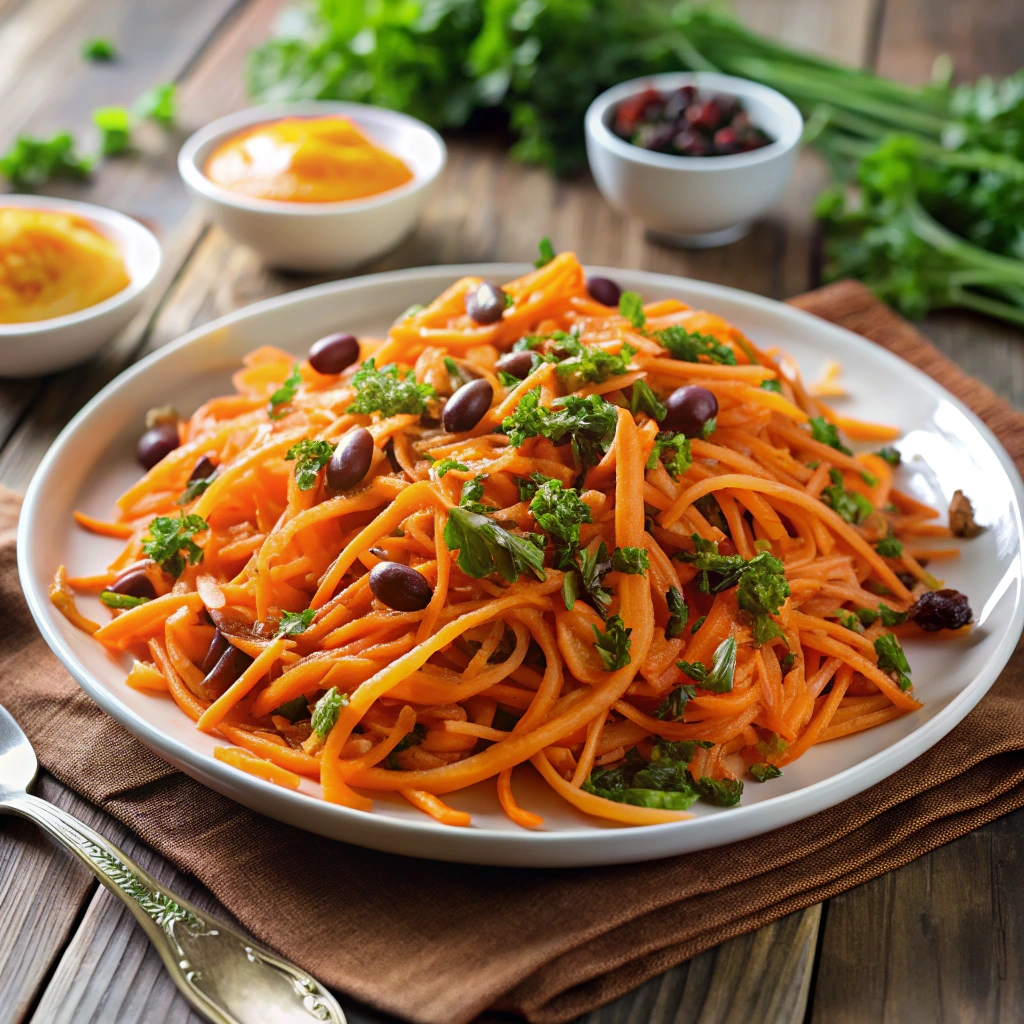
Best Practices For Cooking Frozen Carrots
Cooking frozen carrots is simple and straightforward, but following a few key practices can ensure the best flavor, texture, and nutritional value. Whether you’re boiling, steaming, roasting, or sautéing, these tips will help you get the most out of your frozen carrots.
1. Select the Right Cooking Method
The cooking method you choose can greatly influence the texture and taste of your carrots. Consider these options based on your recipe needs:
- Boiling: Ideal for soups, stews, or when soft carrots are desired. Add frozen carrots directly to boiling water for quick results.
- Steaming: Preserves nutrients and ensures a tender texture. Use a steamer basket and cook until the carrots are fork-tender.
- Roasting: Brings out the natural sweetness of carrots through caramelization. Toss frozen carrots in olive oil and seasonings, then roast in a preheated oven.
- Sautéing: Perfect for stir-fries or as a side dish. Thaw carrots first to avoid excess moisture and achieve a better sear.
For an example of how to use these methods, pair roasted carrots with the Oven-Fried Bisquick Chicken Recipe for a delightful meal.
2. Adjust Seasoning and Spices
Frozen carrots have a milder flavor compared to fresh ones, so don’t hesitate to enhance their taste with bold seasonings. Here are a few ideas:
- Herbs: Thyme, rosemary, or parsley for an earthy flavor.
- Spices: Paprika, cumin, or turmeric for a warm kick.
- Sweeteners: A drizzle of honey or maple syrup to complement the natural sweetness of carrots.
3. Avoid Overcooking
Overcooking frozen carrots can lead to a mushy texture and diminished flavor. Follow these guidelines to ensure they’re cooked just right:
- Boiling or Steaming: Cook for 5–8 minutes or until fork-tender.
- Roasting: Bake at 425°F (220°C) for 20–25 minutes, flipping halfway through for even browning.
- Sautéing: Cook on medium-high heat for 5–7 minutes, stirring frequently.
4. Thaw Only When Necessary
In most cases, you can cook frozen carrots directly without thawing, which saves time and minimizes nutrient loss. However, certain recipes may require thawing to achieve the best results, such as:
- Salads: Thaw and pat dry for firmer texture.
- Casseroles: Thaw to ensure even cooking and avoid watery results.
For a recipe that works best with thawed carrots, try Ultimate Chicken And Dressing Recipe for a flavorful pairing.
5. Cook In Batches for Even Results
Cooking frozen carrots in smaller batches helps them cook evenly without becoming soggy. Avoid overcrowding the pan, especially when sautéing or roasting.
6. Pair Frozen Carrots With Complementary Ingredients
Combine frozen carrots with other ingredients to create balanced, flavorful dishes:
- Proteins: Use alongside chicken, beef, or tofu.
- Grains: Add to rice pilafs, quinoa bowls, or pasta dishes.
- Legumes: Pair with lentils or chickpeas for a hearty vegetarian meal.
For inspiration, check out Healthy Bowl Recipes Variations that incorporate frozen vegetables.
7. Save Time With Direct Cooking
Frozen carrots are a time-saving ingredient. Instead of washing, peeling, and chopping fresh carrots, you can simply cook them directly from frozen in most recipes. This is especially helpful for busy weeknights or when making large meals.
For an easy dinner idea, add frozen carrots to the Slow Cooker Taco Soup Recipe for a quick, nutritious meal.
By following these best practices, you can make the most of frozen carrots in your cooking. They’re versatile, nutritious, and easy to prepare, making them an excellent addition to your kitchen repertoire.
Recipes Featuring Frozen Carrots
Frozen carrots are an incredibly versatile ingredient that can elevate numerous dishes. Whether you’re in the mood for a quick soup, a vibrant salad, or a hearty casserole, frozen carrots are up to the task. Here’s a collection of recipes that highlight their adaptability and ease of use.
Easy-To-Make Recipes Without Thawing
1. Creamy Carrot Soup
- Why It Works: Frozen carrots can be added directly to the pot, saving time and ensuring a smooth, creamy texture when blended.
- How to Make It:
- Sauté onions and garlic in a pot.
- Add frozen carrots, vegetable broth, and seasonings like thyme and cumin.
- Simmer until tender, then blend until smooth.
- Pro Tip: Serve with crusty bread for a comforting meal.
Pair this with the Slow Cooker Taco Soup Recipe for a soup night extravaganza.
2. Stir-Fried Carrots and Vegetables
- Why It Works: Frozen carrots work well in high-heat cooking methods like stir-frying, where their natural moisture keeps them tender.
- How to Make It:
- Heat oil in a wok or skillet.
- Add frozen carrots and other frozen or fresh vegetables like broccoli and snap peas.
- Toss with soy sauce, garlic, and sesame oil until cooked through.
Recipes That Work Best With Thawed Carrots
1. Carrot Salad
- Why It Works: Thawed carrots are perfect for raw or lightly cooked dishes where excess moisture needs to be avoided.
- How to Make It:
- Thaw frozen carrots and pat them dry.
- Toss with raisins, sunflower seeds, and a light honey-lemon vinaigrette.
- Garnish with fresh parsley.
Explore similar light and fresh dishes with Healthy Bowl Recipes Variations.
2. Carrot Casserole
- Why It Works: Thawed carrots mix seamlessly into creamy casseroles, ensuring even baking and flavor distribution.
- How to Make It:
- Combine thawed carrots with a creamy sauce made of sour cream, cheese, and breadcrumbs.
- Pour the mixture into a baking dish, top with additional breadcrumbs, and bake until golden brown.
- Pro Tip: Add herbs like thyme or rosemary for a flavor boost.
Pair this with the Ultimate Chicken And Dressing Recipe for a cozy family meal.
Creative Recipe Ideas Using Frozen Carrots
1. Carrot Puree For Side Dishes
- Why It Works: Thawed carrots blend into a silky, rich puree that complements roasted meats or vegetarian dishes.
- How to Make It:
- Thaw carrots and steam them until tender.
- Blend with butter, cream, and a touch of nutmeg until smooth.
2. Carrot Rice Pilaf
- Why It Works: Frozen carrots add color and nutrition to this versatile side dish.
- How to Make It:
- Sauté onions, garlic, and thawed carrots in a pot.
- Add rice, broth, and seasonings like turmeric or cumin.
- Simmer until the rice is cooked and fluffy.
Pro Tips For Cooking Frozen Carrots In Recipes
- Season Generously: Frozen carrots are mild in flavor, so don’t hesitate to use spices and herbs.
- Avoid Overcooking: Monitor cooking times to preserve texture and prevent mushiness.
- Blend When Needed: For soups and purees, blending frozen carrots directly creates a smooth consistency without thawing.
With these recipes and tips, frozen carrots can be transformed into delicious, crowd-pleasing dishes that are both nutritious and easy to prepare.
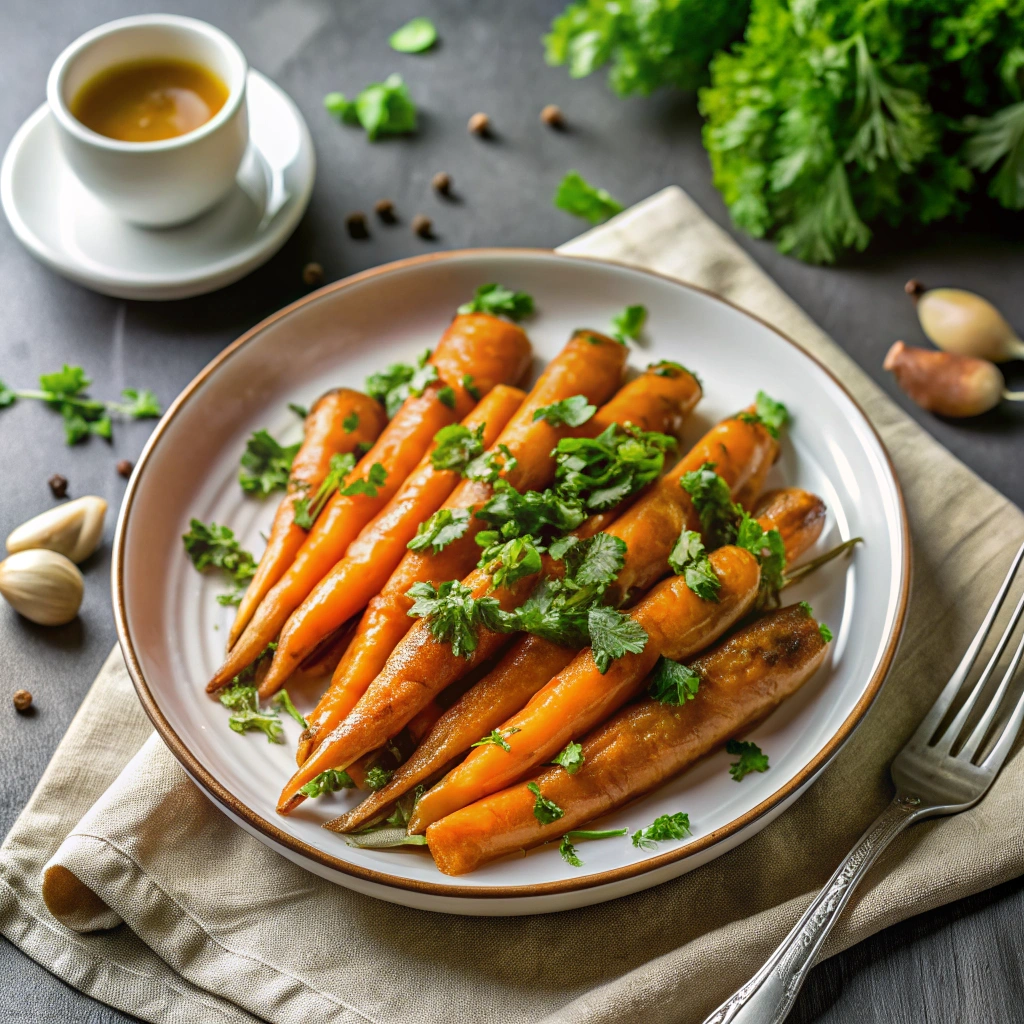
Frequently Asked Questions (FAQs)
Do Frozen Carrots Lose Their Nutritional Value?
Not significantly. Flash freezing preserves most nutrients, including beta-carotene.
Can You Cook Frozen Carrots Directly In A Soup?
Yes! Frozen carrots are perfect for soups and stews. Combine them with recipes like Sinigang Recipe Guide: Best Filipino Sour Soup for delicious results.
How Do You Prevent Frozen Carrots From Becoming Mushy?
Avoid overcooking and, if thawing, pat them dry to reduce moisture content.
What Are The Best Storage Practices For Frozen Carrots?
Store them in airtight packaging at a stable freezer temperature to maintain quality.
Can You Refreeze Carrots After Thawing Them?
It’s not recommended, as this can compromise their texture and flavor.
Conclusion
The debate over whether to thaw frozen carrots before cooking boils down to personal preferences and recipe requirements. While thawing improves texture for dishes like salads or casseroles, skipping this step is ideal for soups, stir-fries, and roasted vegetables. Using frozen carrots simplifies meal prep while retaining essential nutrients like beta-carotene and fiber.
Remember, frozen carrots are one of the most versatile ingredients in your kitchen. With options like Ultimate Chicken And Dressing Recipe and How To Cook Pasta With Flavor, you can transform these humble vegetables into show-stopping dishes.
By following the practices shared in this guide, you can maximize the flavor, texture, and nutritional value of frozen carrots, regardless of whether you thaw them. Let them inspire your culinary creativity, and pair them with recipes like Breakfast Burritos Recipe For Meal Prep for a time-saving twist or Sinigang Recipe Guide: Best Filipino Sour Soup for a bold, comforting meal.
Frozen carrots can be a trusted ally in the kitchen, ensuring quick and delicious meals with minimal effort. Embrace their potential and explore the boundless possibilities they bring to your table!
Stay Connected for More Delicious Recipes!
Love what you see? Follow us on social media for daily inspiration, exclusive recipes, and behind-the-scenes fun! Join our community on Facebook, Instagram, Pinterest, and X to stay updated on all things delicious. Don’t miss out—let’s cook up something amazing together!



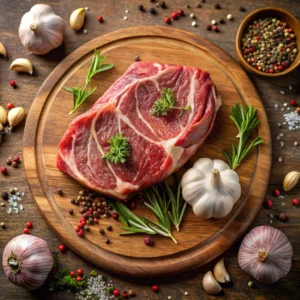
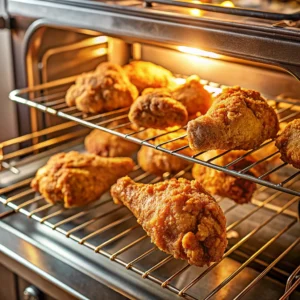

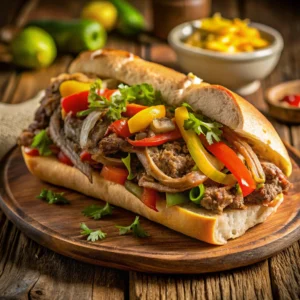
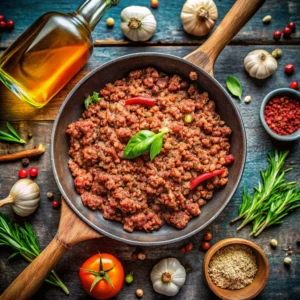
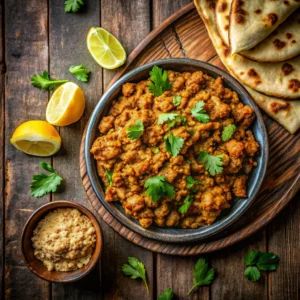
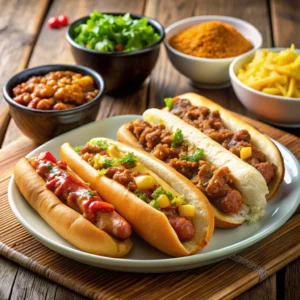
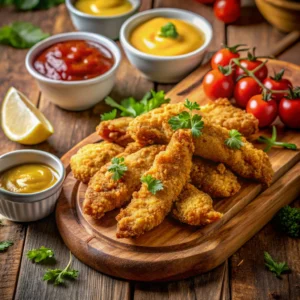
You might also like these recipes
Do You Wash Chicken Keema? The Ultimate Guide to Safe Handling
The Best Side Dishes to Serve With Chili Dogs
Is It Better to Pan Fry or Oven Bake Chicken?